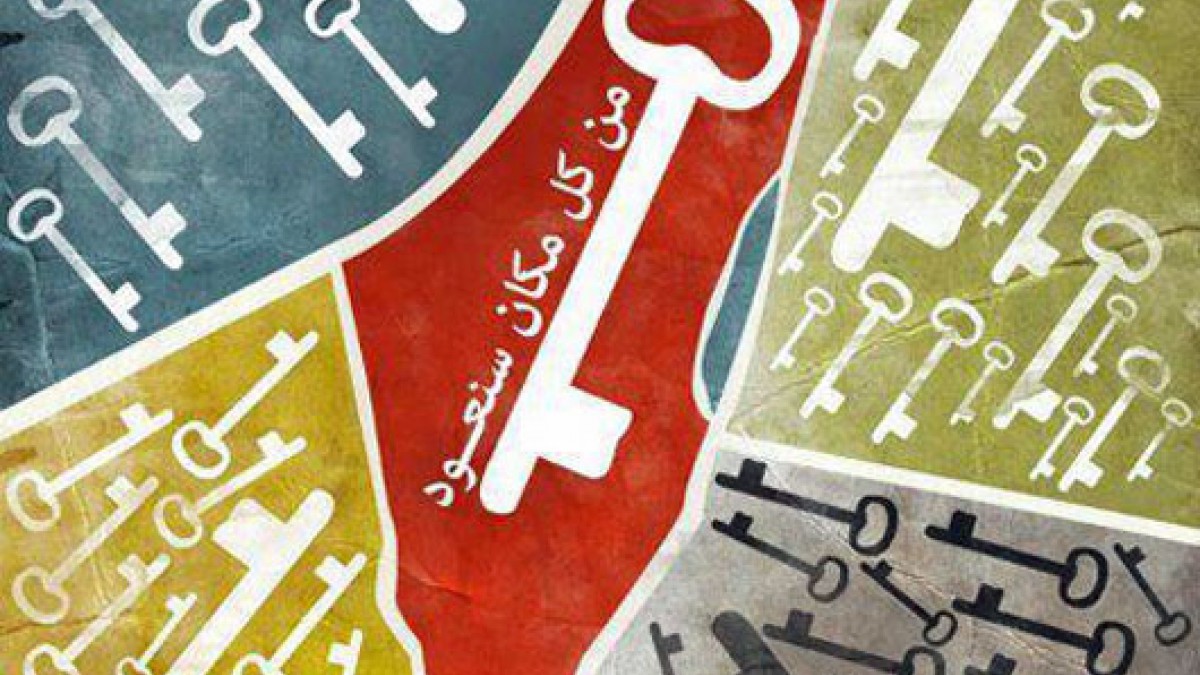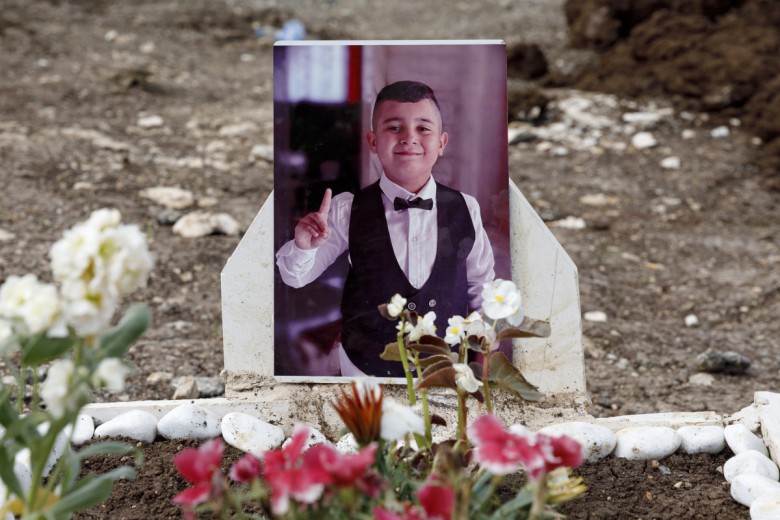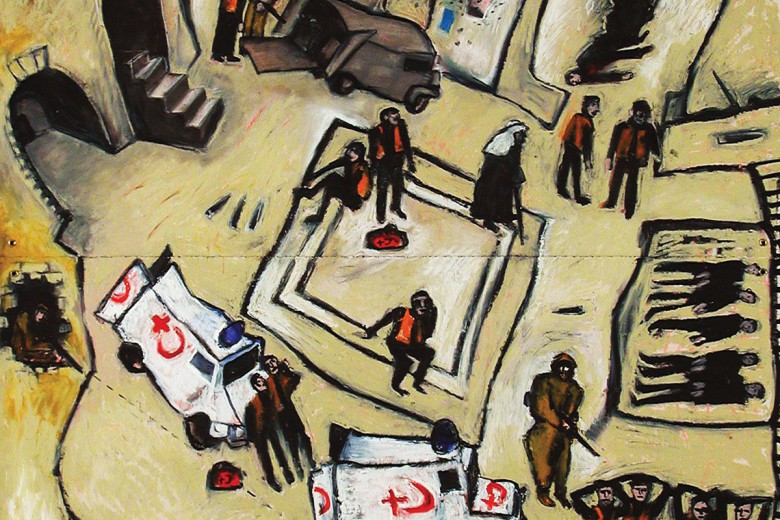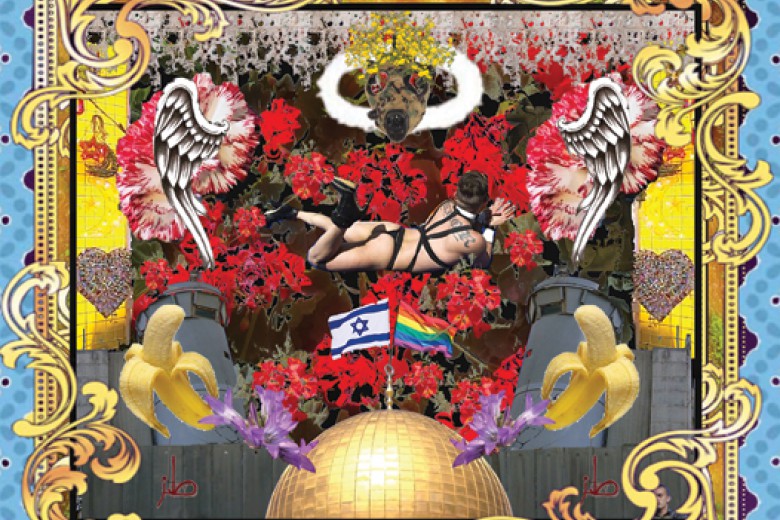This week marks the anniversary of conflicting narratives: the founding of the Israeli state on May 14, and the 70th anniversary of the Palestinian Nakba on May 15. The word Nakba (Arabic for catastrophe) is used by Palestinians and others to describe the period between 1947 and 1949, when over 700,000 indigenous Arabs were driven from their homes during Operation Dalet, to make way for the expansion of the nascent Jewish state of Israel. Since the Nakba is both dismissed and intentionally excluded from the official narrative, most Canadians receive a narrow version of history, one that facilitates the further marginalization of the Palestinian people.
Prime Minister Justin Trudeau recently acknowledged the birth of Israel while blithely ignoring the Nakba, issuing a statement saying that “Canada is proud to stand with Israel. We will continue to oppose efforts to isolate Israel internationally, and work to expand the trade and security relationship between our two countries.” It is Trudeau’s closely guarded trade and “security” relationships that are both cause and symptom of Canada’s cozy relationship with Israel, and the state’s determination to ignore the Nakba.
Today, as Israeli forces at the Gaza border massacre Palestinian protesters who are marching for the right of return to the homes which they were expelled from in 1948, there is nothing but deafening silence from the Canadian government.
Trade: Economic complicity
For decades, the federal government has extended blanket support to the Israeli state. Recently, Canada opted out of condemning Trump’s move to recognize Jerusalem as the capital of Israel. Trudeau’s recent commitment to fight “Anti-Zionism” openly condemns those who support the Boycott, Divestment, and Sanctions (BDS) movement, which includes many Canadian and Israeli Jews. As well, Trudeau’s commitment suggests that BDS supporters are anti-Semitic, without clearly defining Zionism or even acknowledging the movement’s rationale.
Canada signed the Canada-Israel Free Trade Agreement in 1997 for political and economic reasons – but the agreement includes the West Bank as a place where the country’s customs laws apply. As Yves Engler writes, “Canada’s trade agreement is based on the areas Israel maintains territorial control over, not on internationally-recognized borders.” Therefore, Canada’s official claim that it “does not recognize permanent Israeli control over territories occupied in 1967” is irrelevant, considering existing trade policy.
Trudeau’s commitment suggests that BDS supporters are anti-Semitic, without clearly defining Zionism or even acknowledging the movement’s rationale.
Among those who benefit from federal government‘s stance are Canadian and Israeli government-sponsored organizations like the Canada-Israel Industrial Research & Development Foundation (CIIRDF) who provide administrative support and channel public funds to businesses operating in one or both countries. As well, government bodies like Defence Research and Development Canada Export Development Canada are deeply involved in facilitating business ties between Israel and Canada.
Security: A deadly exchange
Operation Proteus is the Canadian military mission in the West Bank, part of the U.S. Security Coordinator office in Jerusalem and aid to the Palestinian Authority. Behind the façade of peace enhancement, Canada is committed to supporting and training the security forces of the Palestinian Authority, a collaborationist administration whose governance of the Palestinian areas of the West Bank primarily serves the interests of local elites and the occupier. Like the former colonial powers, Israel realizes the strategic value of recruiting indigenous peoples to police each other.
Like the former colonial powers, Israel realizes the strategic value of recruiting indigenous peoples to police each other.
It is also worth noting that Canada provides direct military assistance to Israel by allowing Canadian-Israeli dual nationals to serve in the Israeli Defense Forces (IDF). Some dual nationals exploit a legal loophole in the 1985 Foreign Enlistment Act to join the IDF; technically a foreign army. These Canadians serve in a wide variety of IDF units, including battalions whose members refused to serve in Gaza or the West Bank due to their commanders’ brutal attitude towards Palestinian civilians. As well, the Canada Revenue Agency offers charitable status benefits to organizations providing financial and moral support to active duty IDF soldiers. Conversely, most pro-Palestinian groups in Canada are either considered terrorists (Hamas) or supporters of terrorism.
Remembering a catastrophe
In Canada, Nakba Day will be celebrated only by groups like Canadians for Peace and Justice in the Middle East, Independent Jewish Voices Canada, and the Canadian Palestinian Association. Fortunately, NDP MP Niki Ashton broke political ranks last year by attending a rally for Palestinian self-determination and acknowledging the Nakba in a Facebook post. For this she was accused of supporting terrorism by B’nai B’rith Canada.
On March 8, 2018 Ashton was one of the few NDP politicians who voted in favour of a Palestine Resolution which was narrowly defeated by the party elite, many of whom enjoy regular travel to Israel courtesy of lobby groups. The Palestine Resolution both affirmed existing Canadian policy on Israel’s illegal settlements and also supported a boycott of Israeli goods produced in occupied areas. The motion failed, in spite of receiving support from over 25 riding associations and the NDP youth convention.
Like both the governing Liberals and the Conservatives, senior NDP figures like leader Jagmeet Singh and former leader Thomas Muclair avoid advocating for a free Palestine. Only the Bloc Québécois displays any solidarity with Palestinian self-determination – in 2017 they called on the Canadian government to recognize Palestine as a state. Apparently, the vast majority of Canadian MPs prefer that Palestinians wait patiently for the “peace process” to resume – as usual, on strictly Israeli terms.
For the time being, official Canada can still dismiss growing public unease with the behaviour of the Israeli state.
Before writing this article I contacted the following individuals and organizations to request comment on their perception of the Nakba: B’nai B’rith Canada; the Canadian Jewish Congress; the Canadian Christian College; Canada’s ambassador to Israel, Deborah Lyons; the Israeli embassy in Ottawa; Prime Minister Justin Trudeau; NDP leader Jagmeet Singh; Conservative leader Andrew Scheer; and various Members of Parliament. Only John Young, President of the Canadian Museum for Human Rights, responded to my queries and actually used the word “Nakba” in his written reply. Not surprisingly, B’nai B’rith claims that acknowledging the Nakba encourages anti-Semitism.
Canada’s power brokers continue to view even peaceful Palestinian resistance as a dire threat to Israeli hegemony and cast such defiance as terrorism. For the time being, official Canada can still dismiss growing public unease with the behaviour of the Israeli state. Until global Palestinian rights advocacy becomes impossible to ignore, Israel will continue to define the scope of the conflict while falsely portraying itself as a vulnerable state facing an existential threat.





_copy_780_520_s_c1.png)

